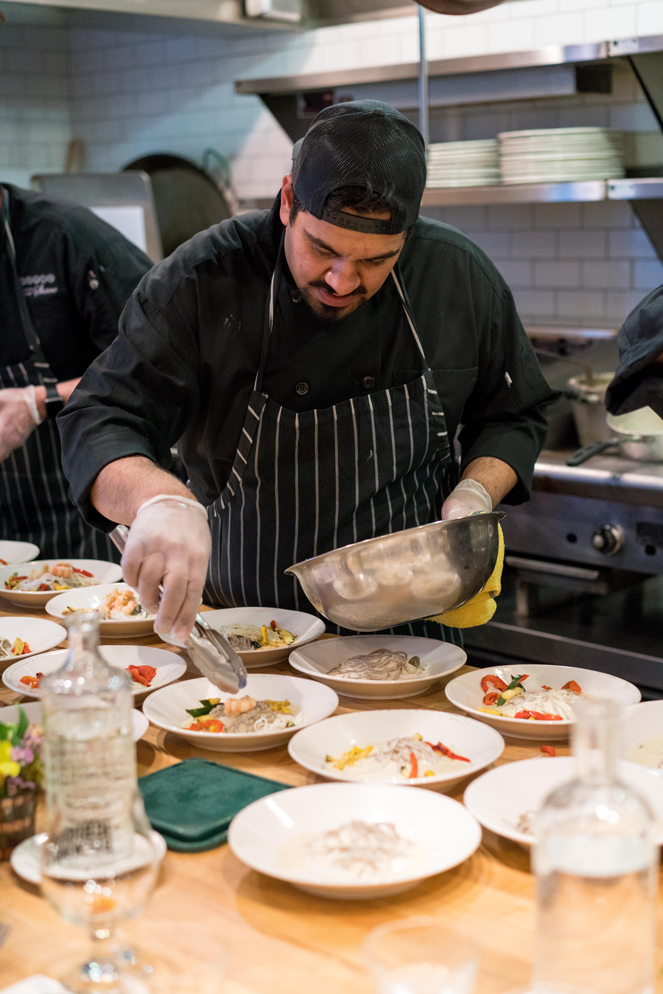Restaurant Vendor Management Lessons from Anthony Bourdain
Chefs Eric Ripert and José Andrés recently decided that, from hereto forth, June 25th shall be a day of celebration of Anthony Bourdain, the chef/author/TV host/bon vivant. Today, on what would have been his 63rd birthday, we remember the inimitable Bourdain and highlight one of the many lessons he taught us over the years – the finer points of restaurant vendor management.
In his break out book and one of the best books ever written about restaurant life, Kitchen Confidential, Bourdain uses incredible honesty and insight to teach all kinds of lessons to both industry and non-industry folks alike. One such insight is the nuanced relationship between a chef and the supplier.
A Day in the Life of Restaurant Vendor Management
In a chapter called “A Day in the Life” – what some might call the pièce de résistance of the book – Bourdain describes a typical workday for the kitchen staff. In those 23 pages, he vividly describes what a day in the kitchen looks, feels, sounds, smells, and even, tastes like.
In one instance of the chapter, Bourdain erupts into a rage upon discovering that his restaurant ran out of tomatoes, because his produce vendor forgot to deliver them. Bourdain picks up the phone and violently berates the vendor. (Anyone who’s ever worked in a restaurant has likely witnessed an unhappy chef at some point).
“Now, with no tomatoes, and no delivery, and the rush building, I’m furious. I call Baldor [the produce company] and start screaming right away: ‘What kind of glue-sniffing, crackhead mesomorphs you got working for you? You don’t have an order for me? What?!
I called the shit in myself … I spoke to a human! I didn’t even leave it on the tape! And you’re telling me you don’t have my order? I got three f*cking produce companies! THREE! AND IT’S ALWAYS YOU THAT F*CKS ME IN THE A$$!’ I hang up, pull a few pans off the flame, load up some more mussels, sauce a duck, arrange a few pheasants, and check my clipboard.”
Upon inspecting his trusty clipboard, Bourdain subsequently realizes that the vendor that he had just chastised is not to blame. Bourdain had confused his orders and purchased the tomatoes from another supplier.
“I’m in the middle of telling Chachundo to run across the street to Park Bistro to ask the chef there if we can borrow some tomatoes when I see, from my neat columns of checked-off items on my clipboard that I didn’t order anything from Baldor. I have no time to feel bad about the mistake — that’ll come later.
After screaming at the blameless Baldor, my anger is gone, so when I call the guilty company, I can barely summon a serious tone. It turns out that my order has been routed to another restaurant — Layla, instead of Les Halles.
I make a mental note to refer to my restaurant as ‘Less Hallusss’ in the future. The dispatcher at the guilty company apologizes for the mix-up, promises my order within the hour and gives me a hundred dollars in credit.”
In another part of the book, Bourdain gets a phone call from a purveyor to solicit Bourdain’s business during the dinner rush. Bourdain entertains the caller before swiftly dismissing him with a few choice words for having called during the busiest time of the day. Under the duress of the kitchen and the stress of not having the right ingredients, it’s easy to make mistakes and let your emotions get the best of you.
Clearly, the relationship between a restaurant operator and distributor can be a tricky one to balance.
Vendors: Friends, Frenemies, Vendemies?
A good vendor is a trusted partner that provides fresh, quality ingredients at a fair price – enabling your chefs to execute your concept and dish out delicious food. They deliver on time, offer reasonable payment terms and empower you to run your restaurant as efficiently as possible.
A bad vendor, on the other hand, is frequently late, delivers spoiled food, mixes up your orders and fails to acknowledge when the prices of your staple ingredients are surging. Some vendors may even prey on restaurants that don’t have the tools or the resources to closely monitor prices or substitutions.
A Better Way to Manage Vendors & Orders
Using old-school methods of tracking orders and managing suppliers makes the task of keeping your vendors honest even more challenging, especially under the high pressure and heat of the kitchen. And, while Bourdain was able to get to the root of his tomato troubles by referring to his clipboard, xtraCHEF offers better ways to balance the tricky relationship between suppliers and chefs.
Our Purchasing and Order Management feature helps chefs make the transition from the clipboard to the tablet (think: iPad) and bridges the digital gap between the kitchen and distributor. We’ve replaced the voicemails, the sticky notes, the kitchen confusion regarding order status and the surprises when the price has gone up 80%.
By creating and dispatching orders in xtraCHEF, your team can stay on the same page regarding what was ordered from whom, when and at what price. Easily dispatch orders directly to vendors, create order guides to easily group together regularly purchased products, solicit bids to get the best prices, and clearly track your order history. When the order shows up, it’s easy to reconcile items, quantities, and purchase price.
Ready to make purchasing and ordering simpler and more organized? Get a demo of xtraCHEF today.
We hope that Anthony Bourdain would be pleased to use xtraCHEF’s Purchasing and Order Management module for restaurant vendor management. One thing is for sure, if he didn’t like it, he would certainly let us know!


